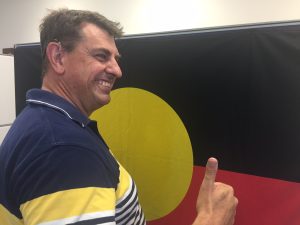Today is the United Nations International Day of World’s Indigenous People
“In Australia an Indigenous child with disability is more likely to matriculate into prison than into tertiary education.
Many Indigenous children are falling through the cracks in the education system because they have a disability that goes unrecognised and is therefore not supp orted.
orted.
To get the best learning outcomes for our kids our education system must be culturally and disability inclusive.”
Scott Avery
Policy and Research Director
From the UN:
2016 Theme: Indigenous Peoples’ Right to Education

This year’s International Day of the World’s Indigenous Peoples is devoted to the right to education.
The right of indigenous peoples to education is protected by the UN Declaration on the Rights of Indigenous Peoples, which in Article 14 states that “Indigenous peoples have the right to establish and control their educational systems and institutions providing education in their own languages, in a manner appropriate to their cultural methods of teaching and learning.”
The right of indigenous peoples to education is also protected by a number of other international human rights instruments, including the Universal Declaration of Human Rights.
Goal 4 of the 2030 Agenda for Sustainable Development calls for ensuring equal access to all levels of education and vocational training for the vulnerable, including persons with disabilities, indigenous peoples and children in vulnerable situations.
In spite of these instruments, the right to education has not been fully realized for most indigenous peoples, and a critical education gap exists between indigenous peoples and the general population.
Where data exist, they show consistent and persistent disparities between the indigenous and the non-indigenous population in terms of educational access, retention and achievement, in all regions of the world.
The education sector not only mirrors the historical abuses, discrimination and marginalization suffered by indigenous peoples, but also reflects their continued struggle for equality and respect for their rights as peoples and as individuals.

Recent Comments